Paul Schuitema
Pioneer of food advertising
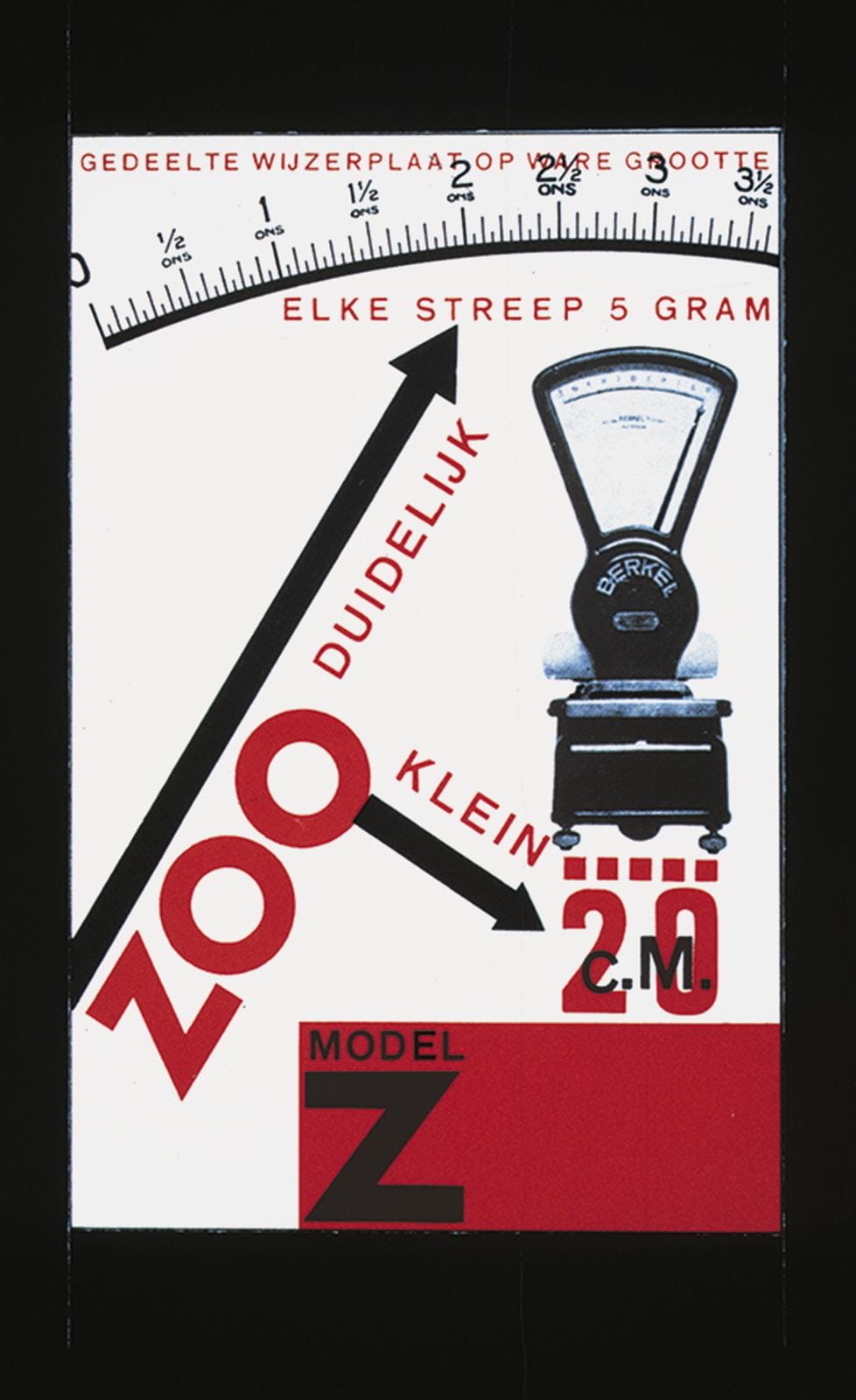
How would you promote something seen every day like food packages, meat scales and slicers? Scales and slicers, the workhorses of industrial food production were depicted as bold, interesting objects in advertisements and brochures designed by Paul Schuitema (1897 - 1973), a Dutch designer working in the 1920s.
Schuitema practiced graphic design but also furniture-making, architecture, photography, painting, lithography and filmmaking. After starting out as a painter, he became interested in mass production and technology which inspired his use of the principals of De Stijl, constructivism and Bauhaus in ads and brochures. He was a member of Kurt Schwitter's Ring neue Werbegestalter (Circle of New Advertising Designers), which included contemporaries Piet Zwart, László Moholy-Nagy, Herbert Bayer and Jan Tschichold.
Ads by Schuitema for the Rotterdam-based companies P. van Berkel Meat Company and the Van Berkel Patent Scale and Cutting Machine Factory elevate the mundane tools with bright colors, dynamic compositions, bold typography and outlined photos. Schuitema experimented with large typography, creating compelling compositions — often with arrows or other shapes — to show the viewer the unique features of the scales, like how easy they were to read.
The product photography, shot from unique angles, is often shown repeated and overprinted with type or color. Might the multiple images suggest mass production? Or the ubiquity of the products?
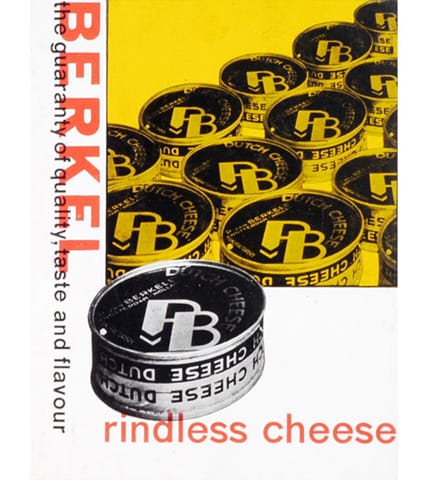
For food ads, he used photomontage to show hundreds of customers literally crying out for the product, as in this example for Nutricia milk power.
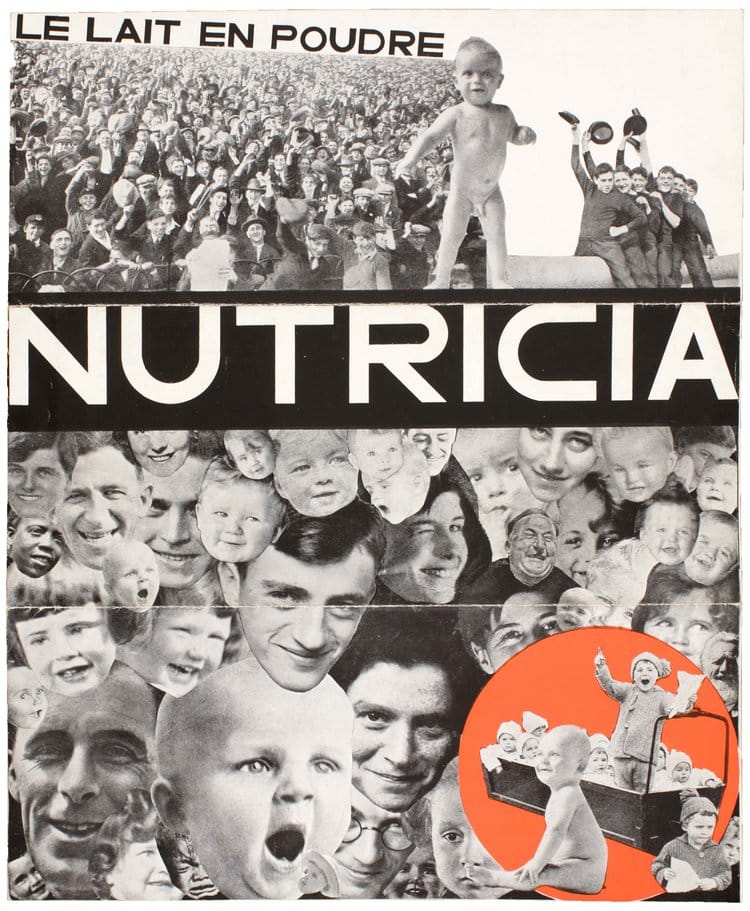
In the ads below, placing images close together, or overlapping, creates a connection between the meat and its delicious flavor or its source (Dutch-raised hogs). Reading the all caps angled typography is like overhearing a conversation at the grocery store or butcher shop.
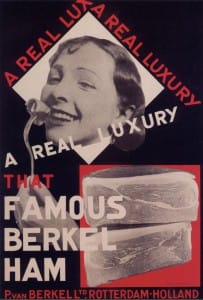
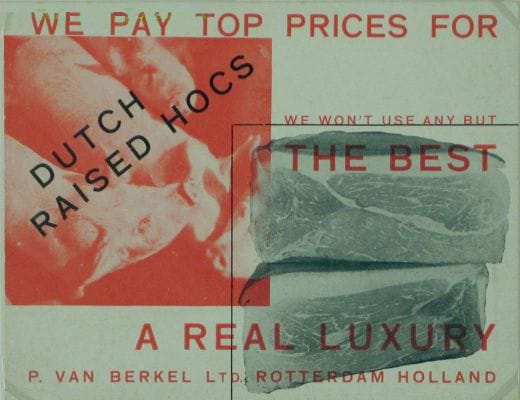
Paul Schuitema, ads for Berkel ham, 1928-1929